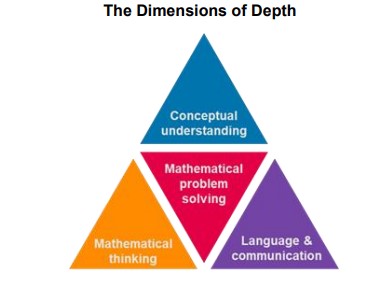Maths Mastery Vision: For every child to enjoy and succeed in mathematics
Intent
We believe that maths is essential to everyday life and provides a foundation for understanding the world. We want to ignite a sense of curiosity and enjoyment of mathematics. Our aim is for children to gain mathematical fluency and the ability to reason mathematically and solve problems by applying their learning to different situations. We want to unlock a passion for maths, motivating the children to learn and encourage the children to believe that they can and will achieve in maths
Implementation
At Whitehall Park School we teach maths using Maths Mastery. Pupils demonstrate mastery of mathematics when they are able to apply what they have already learnt to solve unfamiliar problems. The ability to problem solve is at the heart of the mastery approach. When we are solving problems we are engaging in mathematical thinking and applying mathematical knowledge and understanding, whether that’s in everyday life, applied to our work or just investigating an abstract problem.
The curriculum is cumulative, meaning that once a concept or skill has been learnt it is built upon and applied in the learning that follows. This enables children to gain a much deeper foundation in key concepts and skills.
The core principles of maths mastery are mathematical problem solving, conceptual understanding, language and communication and mathematical thinking
Language and vocabulary Children are explicitly taught mathematical vocabulary. They are given time to talk in maths lessons. They are taught how to explain, justify and discuss using accurate mathematical vocabulary.
Conceptual understanding Pupils deepen their understanding by representing concepts using objects, for example dienes and unifix. They use pictures and in the abstract, with words and symbols. They make connections between different the representations.
Mathematical thinking Children’s conceptual understanding is developed with their ability to verbalise their thinking. This involves identifying patterns, sorting and comparing, making conjectures and generalisations.
Mathematical Problem Solving Children develop their ability to make connections between different areas of maths and with different methods. Children are taught to think creatively and flexibly, to solve problems and link ideas. They develop their mathematical fluency, mathematical reasoning and competence in solving problems.
Format of the lesson
 Each lesson follows the format of recapping prior learning, new learning is introduced, followed by a talk task where children explore the new concept focusing on the use of the correct mathematical vocabulary. Children’s learning is developed as key misconceptions are addressed. Children complete an independent task and finally a plenary consolidates and extends learning.
Each lesson follows the format of recapping prior learning, new learning is introduced, followed by a talk task where children explore the new concept focusing on the use of the correct mathematical vocabulary. Children’s learning is developed as key misconceptions are addressed. Children complete an independent task and finally a plenary consolidates and extends learning.
Times tables are taught at the start of every lesson. All lessons are adapted so that all children are able to access the learning. This may be through scaffolds to support, or challenges to extend their learning.
Maths Meetings are a vital part of our programme, used to consolidate key learning for 10-15 minutes every day outside of the maths lesson. Maths Meetings provide an opportunity to teach and revise ‘general knowledge maths’ which may not explicitly be covered during the maths lesson, and also allows the daily integration of maths into the surrounding environment. This means that pupils are practising concepts and skills on a regular basis, meaning they are continually building on their mastery of these concepts.
Impact
By the end of KS2, all children will have a secure knowledge of the national curriculum and will be able to use the mathematical skills to problem solve and reason. Children will have the skills to solve problems in unfamiliar contexts, using a variety of strategies. They will be able to mathematically reason using mathematical vocabulary. This will ensure that pupils have a secure knowledge that will enable a smooth transition to secondary school.
Calculation Policy
This document outlines the calculation policy for addition and subtraction.
This document outlines the calculation policy for multiplication and division.
Additional Resources and Online Learning Platforms:
- MathsBot – Online teaching tools
- Times Tables Rockstars – Login details will be shared with your child
- BBC Bitesize– Games relating to the KS2 curriculum
- Topmarks– Maths games for all age groups
- Maths Playground– Maths games for all age groups
